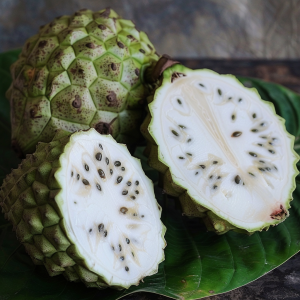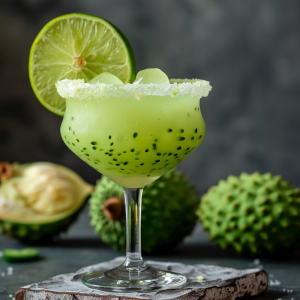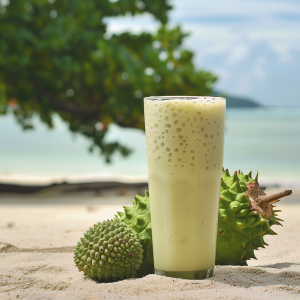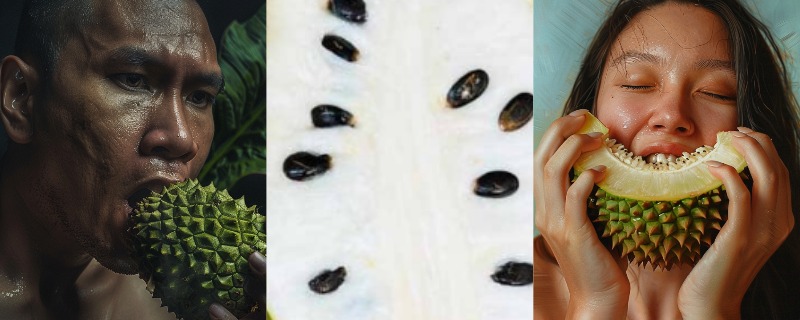We all know the fruit—soft, sweet, and spoon-worthy. But what about those hard black seeds hiding inside your soursop? While the pulp gets all the praise, the seeds tend to spark questions. Are they harmless leftovers, or something you shouldn’t mess with? Before you toss them in the blender or spit them out without a thought, read this.
Let’s get straight to it—these are the answers people keep searching for.
Are Soursop Seeds Edible?
It’s easy to assume that what comes inside a fruit must be harmless. But in the case of soursop seeds, things get a little more complicated. Technically, they’re part of the fruit. But edible? That’s not quite the right word. The seeds are not considered safe to eat and aren’t used in food preparations for a reason.
Are Soursop Seeds Toxic?
Yes, soursop seeds contain compounds that are toxic to humans when consumed in quantity or not prepared properly. These include annonacin, a substance that has raised concerns in some studies due to its potential effects on the nervous system. While you probably wouldn’t eat enough raw seeds to feel the effects immediately, the risk still matters.
Are Soursop Seeds Poisonous?
“Poisonous” is a strong word, but in this case, it’s not far off. Ingesting soursop seeds—especially regularly or in large amounts—can be dangerous. Some studies have linked overconsumption of annonacin (found in the seeds) with neurological issues in areas where soursop is widely eaten. That doesn’t mean the fruit itself is a problem—it’s all about the seeds.

Can Soursop Seeds Be Eaten?
Can they be chewed and swallowed? Technically, yes. Should they be? Probably not. Most health experts recommend removing the seeds entirely. Traditional medicine in some regions has used crushed seeds externally, but ingesting them isn’t a common or recommended practice.
Frequently Asked Questions About Safety and Edibility of Soursop Seeds
Here are several additional Q&A sections about soursop seeds you may be interested in:
Do Soursop Seeds Have Any Nutritional Value?
Not really in the way we think of food. While the seeds do contain some oils and natural compounds, their chemical content includes substances that can be harmful if consumed. So even if they contain a trace of nutrients, those don’t outweigh the health concerns.
Can Soursop Seeds Be Used in Smoothies or Juices?
No, and it’s not just a flavor issue. Blending soursop seeds into drinks can release toxic compounds into your smoothie, which makes them a bad idea for any kind of raw or whole use. Always remove them before juicing or blending the fruit.

What Happens If You Accidentally Swallow a Soursop Seed?
One seed won’t likely cause harm, especially if it’s whole and passes through your system undigested. The concern comes with crushed or chewed seeds, or regular ingestion. If you accidentally swallow one, there’s usually no need to worry—but don’t make it a habit.
Are Soursop Seeds Used in Traditional Remedies?
Yes, in some cultures, crushed seeds are used externally—for example, in pest control or homemade treatments for parasites. However, internal use is generally avoided due to toxicity. Traditional use doesn’t always mean it’s safe to consume.
Can Soursop Seeds Be Planted?
Yes! If you’re curious about growing a soursop tree, the seeds can be used to propagate the plant. Just be sure they’re fresh and properly dried before planting. That’s the safest way to make use of them.
What’s the Main Compound in Soursop Seeds That Raises Concern?
That would be annonacin, a natural chemical found in the seeds and sometimes in the leaves. Annonacin has been linked to nerve-related effects when consumed in larger quantities. That’s the primary reason health experts warn against eating the seeds.
Can Children Eat Soursop Seeds by Accident?
It’s possible, especially if the seeds are left in the pulp. While one seed likely won’t cause harm, it’s important to keep them out of reach and remove all seeds before serving soursop to kids.
Do Soursop Seeds Taste Like the Fruit?
Not at all. Unlike the soft, sweet pulp, soursop seeds are hard, bitter, and unpleasant to chew. There’s no flavor reward—just potential risk.
Are Soursop Seeds Used in Cooking Anywhere?
No, not traditionally or safely. While some tropical fruits have edible seeds, soursop is not one of them. You won’t find seeds in recipes, and if you do, that’s a red flag.

Can Pets Eat Soursop Seeds?
Absolutely not. Pets are even more sensitive to certain compounds, and soursop seeds should be kept away from animals entirely. Always discard them safely.
Can Soursop Seeds Be Roasted or Cooked to Make Them Safe?
There’s no proven method to make soursop seeds safe for eating—not even roasting or boiling. Cooking won’t reliably remove the harmful substances.
How Do You Remove Soursop Seeds Easily?
The seeds are embedded in the pulp but can be pushed out with your fingers or scooped with a spoon. Ripe fruit makes removal easier, and a quick rinse helps separate seeds from stringy bits.
Why Are Soursop Seeds Still Found in Some Herbal Shops?
Some herbal markets may carry crushed or powdered soursop seeds for topical use or traditional remedies. That doesn’t mean they’re safe to consume—always research and use caution.
Can Soursop Seeds Be Used for Oil?
Yes, some specialty producers extract oil from the seeds for cosmetic use. However, this oil is not for internal use, and its production requires proper handling to remove toxins.
Interesting Facts About Soursop Seeds
If you like lists of interesting facts, here are some real and documented facts about soursop seeds (Annona muricata), highlighting their diverse uses and cultural significance:
1. Natural Pesticide
In the Virgin Islands, pulverized soursop seeds are utilized as an effective pesticide against head lice, southern army worms, and pea aphids. Extracts of the seeds in petroleum ether and chloroform have shown toxicity to black carpet beetle larvae.
2. Traditional Fish Poison
Historically, in various regions, the seeds, along with the bark and roots of the soursop tree, have been used as fish poison. This practice leverages the toxic properties of the plant to immobilize fish for easy collection.
3. Cosmetic Applications
Soursop seed oil, rich in oleic and linoleic acids, is employed in the cosmetic industry as an emollient in creams and lotions. It serves as a natural alternative to synthetic products, contributing to the chemical and physical characteristics of the products.
4. Antioxidant Properties
Studies have indicated that soursop seeds possess antioxidant properties, which help neutralize harmful free radicals in the body. This may reduce the risk of chronic diseases such as heart disease and certain types of cancer.
5. Potential Antimicrobial and Anti-inflammatory Effects
Preliminary studies suggest that soursop seeds may have antimicrobial and anti-inflammatory properties, potentially aiding in combating infections and reducing inflammation in the body.
6. Caution Advised
Despite their potential benefits, soursop seeds contain annonacin, a natural compound that has been linked to neurotoxicity. High levels of annonacin have been associated with atypical Parkinson’s disease and other neurological disorders. Therefore, it is advisable to avoid excessive consumption and consult with a healthcare professional before incorporating them into the diet.
7. Agricultural Use
Soursop seeds can be planted to propagate the soursop tree. They yield the best results in hot and humid climates, as these tropical fruits require ample sunlight. This practice is common in regions where soursop is cultivated for its fruit.
The Bottom Line
Soursop might be a fruit worth spooning into, but the seeds are better off left out of your snack. They aren’t meant for eating, blending, or tossing into tea. They may be small, but they carry risks that outweigh any possible benefit. So next time you’re scooping up the pulp, let the seeds do what they do best—stay in the compost bin.


